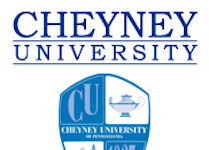Here is this week’s news of grants or gifts to historically Black colleges and universities or for programs of particular interest to African Americans in higher education.
 The University of Tennessee Health Science Center in Memphis received a $1 million grant from the National Heart, Lung, and Blood Institute for a new research project that could impact and expand the discovery of new treatment options for sickle cell patients. One in 13 African Americans have the sickle cell trait and over 100,000 people in the U.S. have sickle cell disease. The grant is under the direction of Athena Starlard-Davenport, an assistant professor of genetics, genomics, and informatics in the UTHSC College of Medicine.
The University of Tennessee Health Science Center in Memphis received a $1 million grant from the National Heart, Lung, and Blood Institute for a new research project that could impact and expand the discovery of new treatment options for sickle cell patients. One in 13 African Americans have the sickle cell trait and over 100,000 people in the U.S. have sickle cell disease. The grant is under the direction of Athena Starlard-Davenport, an assistant professor of genetics, genomics, and informatics in the UTHSC College of Medicine.
Prairie View A&M University, a historically Black educational institution in Texas, received a $399,931 grant from the National Science Foundation to increase learning capabilities surrounding the Internet of Things at both PVAMU and other historically Black colleges and universities. The funding will provide for the development of an Internet of Things Innovation Laboratory and learning modules that will be integrated into computer science courses. There are also plans for Internet of Things competitions with other HBCUs.
Historically Black Elizabeth City State University in North Carolina received a $400,000 grant from the U.S. Department of Energy to support underrepresented students in STEM education who could contribute to the nation’s energy workforce. With the funds, the university will establish a renewable energy laboratory with solar and wind training systems. The grant will also provide scholarships, research assistant positions, internships, and faculty development programs.
Hampton University, the historically Black educational institution in Virginia, received a $300,000 grant from the National Science Foundation for research on developing anti-bacterial surfaces. The research may have a wide-ranging impact in the biomedical, chemical, and food industries where bacterial contamination is of concern.
Lincoln University and Cheyney University, both historically Black educational institutions in Pennsylvania, will share $3 million in funding from the Pennsylvania Department of Education to help the universities prepare to bring students back to campus during the COVID-19 pandemic. The funds can be used for anything from purchasing protective equipment and hand sanitizer/cleaning products, equipment or technology to take classrooms online, installation of barriers or other protective devices in building structures, to purchasing health apps to assist in contact tracing and monitoring students.










